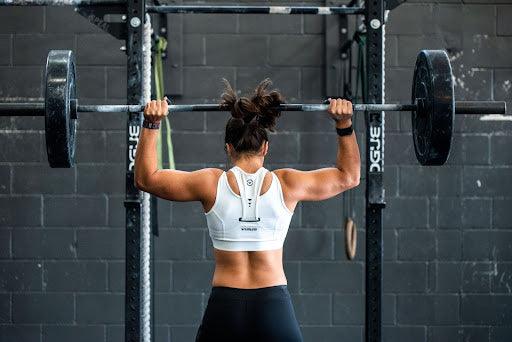

Choose the right creatine with care and caution
When it comes to enhancing athletic performance and building muscle, creatine supplements have gained significant popularity among fitness enthusiasts. Creatine is a naturally occurring compound found in our muscles, and it plays a crucial role in providing energy for high-intensity activities. According to Mount Sinai, creatine supplements boost strength and lean muscle formation during high-intensity exercise.
While creatine can be obtained from various sources like meat and fish, many individuals opt for creatine supplements to ensure an adequate supply for their workouts. However, it's essential to be cautious and informed about the ingredients present in these products. In this article, we will explore some creatine ingredients that require careful consideration when reading product labels.

Artificial Sweeteners
One common ingredient found in many creatine supplements is artificial sweeteners – additives that provide sweetness without adding calories. While they can be appealing to those watching their caloric intake, some artificial sweeteners have raised concerns regarding their potential adverse effects on health. For instance, aspartame and sucralose have been associated with digestive issues, headaches, and even metabolic disorders in certain individuals. When choosing a creatine supplement, it is advisable to opt for products, like CON-CRET Creatine, that use natural sweeteners like monk fruit, stevia, or erythritol or are completely free of artificial sweeteners.

Fillers and Binders
Some creatine supplements may contain fillers and binders to improve texture, increase product volume, or aid in the manufacturing process. These additional ingredients are not necessarily harmful, but they can dilute the concentration of the active ingredients, including creatine. Common fillers include maltodextrin and cellulose. While small amounts of fillers and binders are generally acceptable, it's important to be aware of the overall ingredient composition to ensure you're getting an effective and high-quality creatine supplement.

Impurities and Contaminants
It's crucial to check for any impurities or contaminants in creatine products, as these substances can potentially pose health risks. For instance, some low-quality creatine supplements may contain heavy metals, such as lead or arsenic, which can have detrimental effects on your health if consumed in excessive amounts.
In fact, most of the world’s creatine is manufactured in China where there are little to no quality checks. The lack of quality control in these facilities leads to a greater risk of harmful contaminants.
Look for products that have been independently tested by third-party organizations for purity and quality. These certifications can provide reassurance that the product has undergone rigorous testing and meets stringent safety standards.
Proprietary Blends
Another factor to consider when reading product labels is the presence of proprietary blends. A proprietary blend is a mixture of ingredients where the specific amounts of each ingredient are not disclosed. While manufacturers often claim that proprietary blends offer unique benefits, the lack of transparency can make it difficult to determine the exact dosage of each ingredient, including creatine. This makes it challenging to assess the product's effectiveness and may lead to potential overdosing or underdosing. It is generally recommended to choose creatine supplements that clearly state the amount of creatine per serving, allowing you to track your intake accurately.
Added Stimulants
Some creatine products may include added stimulants like caffeine or other energy-boosting compounds. While these ingredients can provide a temporary increase in energy and focus, they may not be suitable for everyone, especially those with heart conditions, those who are sensitive to stimulants, or those who prefer to avoid them altogether. Additionally, excessive consumption of stimulants can lead to side effects such as jitters, increased heart rate, and sleep disturbances. If you prefer a stimulant-free option, ensure that the creatine supplement you choose does not contain any added stimulants.
The Best Creatine to Fuel Your Life
In conclusion, reading product labels is crucial when selecting a creatine supplement. Pay attention to artificial sweeteners, fillers and binders, impurities and contaminants, proprietary blends, and added stimulants.
Opting for products that use natural sweeteners, have minimal fillers and binders, have undergone rigorous testing for purity, disclose the specific amounts of ingredients, and are free of added stimulants will help ensure that you make an informed decision and choose a high-quality creatine supplement that aligns with your health and fitness goals. Remember, being cautious and knowledgeable about the ingredients in your creatine product is key to maximizing its benefits while prioritizing your well-being.
If you’ve been searching for the best possible creatine supplement to fuel your body, you’ve come to the right place. CON-CRET® creatine supplements contain our Patented Creatine HCl®, the most soluble and bioavailable creatine derivative on the market. Browse through all of our products to learn more.
